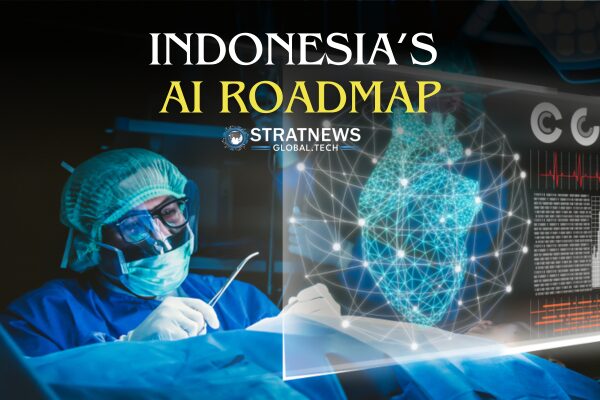Indonesia is set to finalise its first national artificial intelligence strategy by August 2025, as the nation looks to secure foreign investment and stake its claim in the global AI and semiconductor industries. This move marks a significant step for Southeast Asia’s largest economy as it attempts to catch up with regional competitors like Malaysia, which has already attracted billions from international tech firms aiming to develop AI infrastructure.
From Ethics Guidelines to Comprehensive AI Roadmap
This forthcoming AI roadmap will be Indonesia’s first detailed strategy dedicated to AI development, following a modest ethics guideline published in 2023. According to Nezar Patria, Deputy Minister of Communications and Digital, the roadmap will guide AI developers in navigating the Indonesian market by outlining infrastructure needs and computational clusters, as well as highlighting opportunities for AI adoption in key sectors such as healthcare and agriculture.
“This will give an idea to investors about the potential of AI use in Indonesia,” Nezar told Reuters. “We’re hoping they are interested in investing their capital in Indonesia.”
Economic Potential Against a Backdrop of Slow Progress
An April 2025 report by Boston Consulting Group identified ASEAN nations as poised for significant AI-driven economic growth, forecasting GDP contributions of 2.3% to 3.1% by 2027, with Indonesia predicted to experience the highest absolute growth. However, despite isolated investments, Indonesia’s AI development has been relatively sluggish compared to its regional counterparts.
To date, Indonesia has attracted some high-profile partnerships. Nvidia collaborated with national tech conglomerate GoTo Gojek Tokopedia to launch a large language model service last year and supplied semiconductor chips to telecommunications provider Indosat. Microsoft has also pledged a $1.7 billion investment over the coming years to expand its cloud and AI services within the country.
Nezar affirmed Indonesia’s openness to partnerships with all major global technology firms as it seeks to establish itself as a hub for AI development.
Tapping Critical Minerals for Semiconductor Ambitions
In addition to AI, Indonesia is positioning itself within the semiconductor supply chain by pitching its rich reserves of critical minerals to international investors. Nezar confirmed that Indonesia had offered the United States an opportunity to jointly invest in a critical minerals project, part of wider trade negotiations between Jakarta and Washington. This move comes as the US seeks alternative supply sources to counter China’s dominance in rare earth materials—a dominance reinforced by Beijing’s recent decision to restrict exports of certain rare earths in retaliation for US tariffs.
Challenges Remain: Infrastructure and Skills Shortfall
Nevertheless, analysts remain cautious about Indonesia’s readiness to lead in AI development. Damar Juniarto, from the research centre PIKAT Demokrasi, pointed to the country’s lack of infrastructure, particularly in chip manufacturing, and the limited availability of AI expertise within the workforce as major obstacles.
Nezar acknowledged risks around misinformation, intellectual property, and data security, though he provided little detail on how these concerns would be addressed in the upcoming roadmap.
Indonesia’s Digital Future at a Turning Point
As Indonesia prepares to unveil its first national AI strategy, the government hopes to usher in a new era of technological development and investment. Whether this roadmap will translate into practical growth and infrastructure development remains to be seen, but it represents a significant statement of intent from one of Southeast Asia’s most influential economies.
with inputs from Reuters


